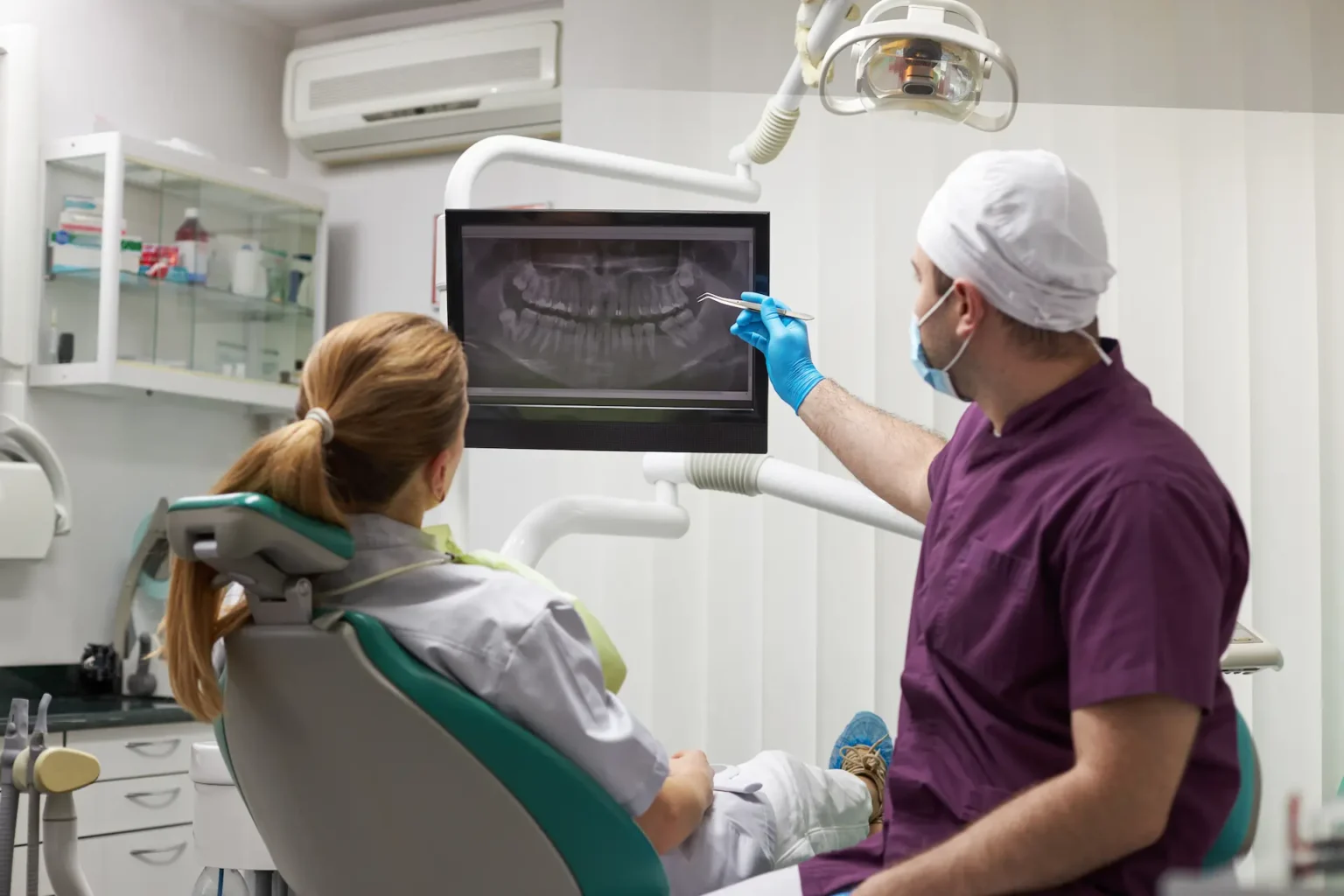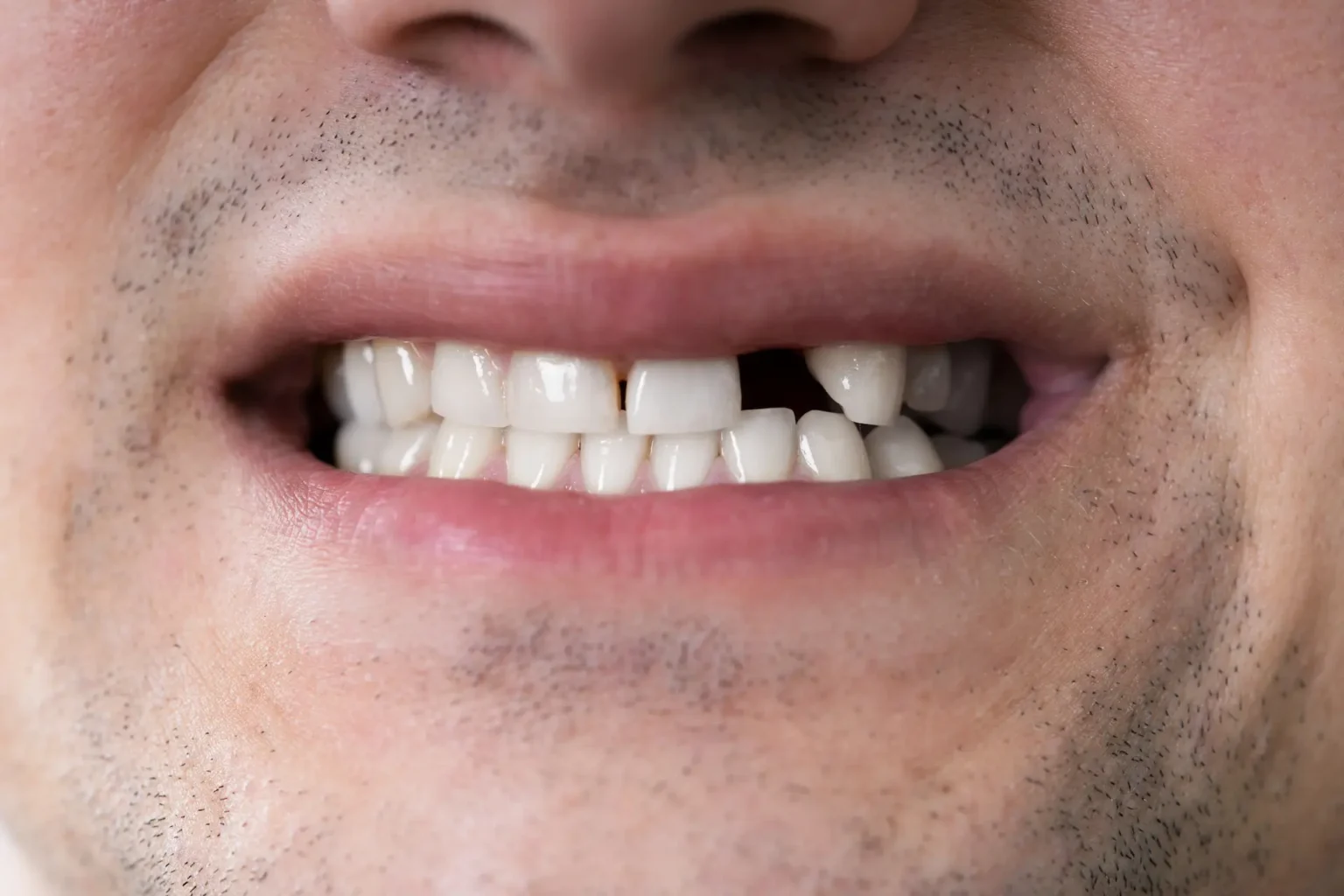Yes, implants help prevent bone loss in the long term. Most people don’t realize it, but when you lose a tooth, your jawbone starts to shrink. In fact, studies show you can lose up to 30% of the bone in that area within just six months.
It’s not something you notice right away. But over time, that bone loss can change the shape of your face, affect how your teeth fit together, and even make it harder to replace the missing tooth later on.
Dental implants solve this problem by replacing not just the tooth, but the root. They fuse with the jawbone and keep it active, which helps maintain bone strength over time.
Let’s discuss how bone loss works, how implants help prevent and stop bone loss, and what to keep in mind if you’re thinking about protecting your long-term oral health.
Key Takeaways
- Dental implants help prevent bone loss by replacing the missing tooth root and stimulating the jawbone.
- Without a tooth or implant, the jawbone begins to shrink, often starting within months of tooth loss.
- Implants fuse with the bone through osseointegration, which supports long-term stability and bone health.
Why Bone Loss Happens After Tooth Loss
Your jawbone is a living structure, and like muscles, it needs regular use to stay strong. When a tooth is in place, every bite you take sends pressure through the root and into the bone. This keeps the bone stimulated and healthy.
But once a tooth is removed, that pressure disappears. Without stimulation, the body assumes the bone is no longer needed and slowly begins to break it down and absorb it. This process is called bone resorption.
Here’s what bone loss can lead to over time:
- Your jaw may start to look sunken or aged
- Teeth near the gap can shift out of place
- Your bite may feel different or uncomfortable
How Dental Implants Prevent Bone Loss
Dental implants are the only tooth replacement option that helps maintain the strength of your jawbone. Implants don’t just fill the gap where your tooth used to be; they replace the root, too.
When an implant is placed, it fuses with the bone in a process called osseointegration. This means the implant becomes part of your jaw, just like a natural tooth root. Every time you chew, the implant sends signals to the surrounding bone to maintain its activity and health.
Here are the long-term benefits of dental implants:
- They restore natural chewing pressure, which keeps the bone stimulated
- They stop the bone from shrinking in the area where the tooth is missing
- They prevent nearby teeth from shifting, which helps keep your bite aligned
- They protect the shape of your face and jawline, especially when multiple teeth are missing.
Unlike other tooth restoration methods, implants work with your body, not against it. That’s why they’re considered the gold standard for long-term tooth replacement.
Long-Term Success: What the Research Shows
Clinical studies show that after the first year of healing, a healthy dental implant typically experiences less than 0.2 millimeters of bone loss per year. That’s a very small amount, especially compared to the natural bone loss that occurs without any replacement.
Other research has found that:
- Most dental implants have a success rate of over 95%
- In many cases, they can last 20 years or longer
- Patients who replace teeth early tend to preserve more bone than those who wait.
The sooner you replace a missing tooth with an implant, the better chance you have of keeping the surrounding bone intact. It’s a long-term investment in both your smile and your jaw health.
Do All Types of Implants Help Prevent Bone Loss?
Most dental implants are designed to preserve bone, but not all implants work the same way. The size, placement, and type of implant can affect how well your jawbone responds over time.
Traditional dental implants are the most reliable option for long-term bone support. They’re placed deep into the jawbone, where they fuse and function like real roots. This direct connection is what helps prevent bone loss.
Mini dental implants, on the other hand, are smaller and often used when there’s less bone to work with. While they can still provide stability and prevent some bone shrinkage, they don’t stimulate the bone quite as effectively as full-sized implants.
That doesn’t mean mini implants are bad. In some cases, they’re the right choice, especially for patients who can’t undergo bone grafting or want a less invasive procedure. But it’s important to know they may not offer the same long-term bone support.
Dr. Hanna will help you determine which type of implant is best suited for your needs, taking into account your bone density, health history, and smile goals.
Can Implants Cause Bone Loss (And How to Prevent It)?
Dental implants are designed to prevent bone loss, but like any other medical device, they require proper care to function effectively. In rare cases, bone loss can still happen around an implant if certain issues are left untreated, but this doesn’t mean implants are the cause of bone loss.
One common cause is a condition called peri-implantitis. This is an infection of the gum and bone around an implant, often caused by poor oral hygiene, smoking, or missed dental cleanings. If left untreated, it can lead to inflammation and gradual bone loss.
These problems are preventable. With the right placement, regular dental visits, and daily home care, most patients can avoid bone loss around their implants. Plus, Dr. Hanna takes extra steps to protect your results by using 3D imaging for precise placement, high-quality materials, and ongoing monitoring to keep your implant site healthy for the long term.
How to Protect Bone Around Your Implants Long Term
Here’s what you can do to keep your implants and your jawbone strong for the long run:
- Brush and floss with a Waterpik every day. Treat your implant like a natural tooth. Plaque can build up around the gums and lead to problems if not cleaned properly.
- Use a soft toothbrush and non-abrasive toothpaste. This protects both your gums and the materials around the implant.
- Stay on top of dental checkups. Dr. Hanna will monitor the bone around your implants using digital imaging and regular exams.
- Avoid smoking. Tobacco use reduces blood flow and slows healing, which can weaken the bone and increase the risk of implant failure.
- Treat clenching or grinding early. If you grind your teeth, talk to your dentist about getting a night guard to protect the implant from extra pressure.
- Follow any post-surgical care instructions carefully. The first few months are especially important for healing and bone integration.
Protect Your Smile and Your Bone Health at Hanna Dental Implant Center
Dental implants help protect the foundation of your smile by preventing the bone loss that naturally happens after tooth loss. And when placed and cared for properly, they can support your jaw health for decades.
If you’re thinking about implants, timing matters. The sooner you replace a missing tooth, the more bone you can preserve. Dr. Hanna and the team use advanced imaging, precise planning, and years of experience to deliver implant solutions that are built to last. Whether you’re missing one tooth or several, we’re here to help you protect your smile from the inside out.
Contact us now to get started.
Frequently Asked Questions
How do dental implants help preserve bone?
Dental implants act like natural tooth roots. They send pressure into the jawbone when you chew, which keeps the bone active and prevents it from shrinking. This stimulation helps maintain bone volume and strength over time.
What happens to my jawbone if I don’t replace missing teeth?
When a tooth is missing, the bone underneath it no longer gets the stimulation it needs. As a result, the body begins to break down and absorb the bone in that area. Over time, this can lead to a sunken facial appearance and changes in your bite.
Are implants better than dentures for bone health?
Yes. Dentures rest on the gums and don’t provide direct stimulation to the jawbone. Implants, on the other hand, fuse with the bone and help keep it strong. This makes them a better long-term option for maintaining bone health.
Is bone loss still possible after getting implants?
In rare cases, yes. Bone loss can occur if there is an infection, poor oral hygiene, or excessive pressure on the implant. However, with proper placement, regular dental care, and good oral hygiene habits, most patients can maintain healthy bone levels for many years to come.
How soon should I get implants after losing a tooth?
Ideally, you should consider implants within the first few months after losing a tooth. This helps prevent significant bone loss and facilitates easier implant placement. If you’ve waited longer, don’t worry, contact Dr. Hanna, and his team will help you explore your options, including bone grafting if needed.


